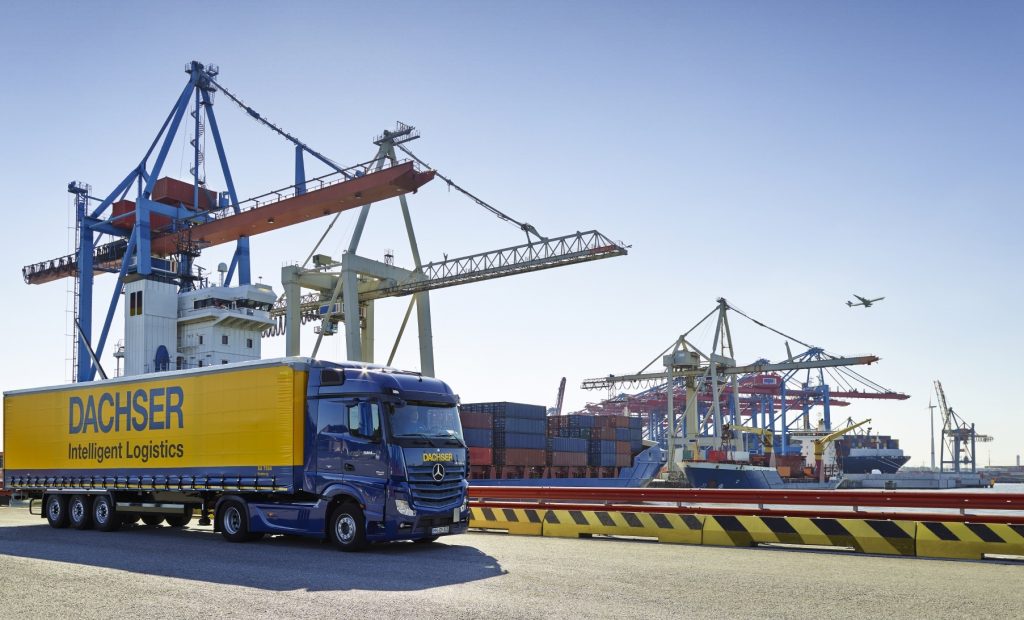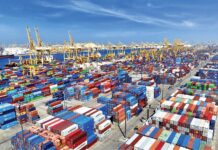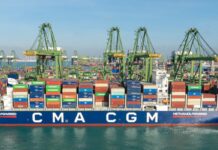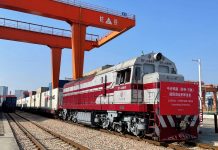
Maintaining supply chain resiliency through the COVID-19 pandemic
The COVID-19 crisis was a black swan event that shocked the global logistics sector. In Thailand, this was no exception. The disruption of manufacturing and shipping cycles has posed a major challenge to the country’s emergence as an ASEAN logistics hub. How has Dachser Thailand proven their resilience in the face of these uncertain times?
Immediately following the escalation of the COVID-19 crisis in early 2020, travel restrictions grounded passenger planes worldwide. As a result, Thailand’s logistics capacities took a deep hit due to its heavy reliance on the travel industry, and the reduced belly cargo capacity has directly impacted air freight rates.
The sea freight market was not spared either. The dire situation became apparent at the end of last year when capacity constraints, equipment shortages and delayed schedules became the new normal in the ocean freight world. In addition, the blockage of the Suez Canal added fuel to the fire, resulting in a backlog that will have long-term knock-on effects down the already-strained supply chain.

The market of demand and supply mismatch
While supply chains run at reduced capacity, there is also a surge in demand for not only medical equipment and pharmaceutical items but also consumer goods due to lockdowns and travel restrictions. This supply and demand mismatch in logistics has resulted in exorbitant shipping prices.
Between March 2020 and January 2021, CNBC has reported that freight rates from China to the US and Europe have jumped 300%. The Shanghai Container Freight Index, the most widely used index for sea freight rates out of China and as an indicator for long-haul traffic out of Asia, has shown significant increases throughout 2021, continuing to break records through May and expected to rise into June.
The logistics industry has struggled to resume normal rates of operations. According to market data and industry reports, this trend is projected to continue until the end of 2021. As parts and components for manufacturing are sourced worldwide for most products, these shipping costs will have ripple effects across the global economy and impact the budgets of all players along the supply chain.
Risk management and cost control along the supply chain
Dachser Thailand, a Germany headquartered global logistics service provider with 90 years of history, has proven resilient despite these challenges. Responding in lockstep with the rapid changes facing the logistics sector, the company helped its customers get through these turbulent conditions by keeping their supply chains uninterrupted and costs stable.
“Since the start of the COVID crisis last year, we realized early on how quickly market conditions were changing. Therefore, our sales team maintains close communication with customers and ensures pricing stability to make short term planning viable despite market turbulence. This can give ample time for the customers to re-adjust to the new situation,” said Umaporn Limpiphiphatn, Sales Manager Air & Sea Logistics Thailand.
The latest survey conducted by Deloitte* after COVID suggested that driving operational efficiency based on predictability is of utmost importance among the Chief Procurement Officers (CPOs). However, only 22% of CPOs can identify and predict risk based on predictive analytics of their own data. This low percentage highlights the importance of consulting professional logistics service providers.
“At Dachser, we have a strong product team at the global, regional and local level. This gives us the necessary edge to adapt appropriately to the changes in the market situation. Furthermore, our close collaboration within the company allows us to provide customers with the latest market updates regularly, which are highly relevant and often budget-changing to our customers. Based on that, we offer space availability following customer demand,” continued Limpiphiphatn.
“We do not simply forward the shipment, but we work beyond that by providing a macro overview of the market situation and give advisories,” the young manager stressed. “Using our expertise and industry know-how, we proactively offer scenario planning to our customers, outlining all possible options in a structured way with visual illustration for easy understanding. This transparency gives customers the resources to accurately gauge costs versus risk for effective decision making. Then, based on the requirements of each customer, we will advise which option we believe to be the most cost-effective.”

Change of focus on the procurement side
In the logistics sector, securing space is one of the most critical aspects in guaranteeing the smooth flow of the supply chain. The recent changes in the space allocation to the relevant trade lanes had severe impacts down the supply chain, changing the logistics section from a buyer’s market to a seller’s market for asset-based carriers. At present, there are no indications that this situation will revert to the pre-pandemic level. It can be an unused and often new situation and a necessary adaption for many shippers and consignees alike.
Safeguarding its operations from space fluctuations, Dachser has a Space Protection Program with its long-term strategic carriers to ensure continuity for its key trade lanes, particularly for trade with Europe. This program provides reliable transport capacity even in the unpredictable market conditions of the current crisis. For example, the company has guaranteed space allotments on flights from Bangkok to Frankfurt and pre-booked space on vessels travelling from Hamburg to Bangkok.
As a result of the pandemic, reducing costs is no longer seen as the top priority among Procurement Officers. Instead, digital transformation and innovation are gaining significant importance as the main drivers for sustainable growth*.
“We always encourage our customers to transmit shipment data through EDI for higher accuracy and faster processing. We also offer integrated solutions with the worldwide standardized process to our customers to avoid further risk along the supply chain,” said Jan-Michael Beyer, Managing Director Air & Sea Logistics Thailand, “we have a firmly established set up in Europe with a pan-European road logistics network for procurement and distribution. We can also offer warehousing solutions if needed. Using our own services, we have full control of the whole transport logistics process to reduce uncertainty. The process is managed via our in-house developed Transport Management System Othello. Customers are also able to monitor the process using our real-time track & trace system eLogistics.”
Get prepared

The global uncertainties resulting from the COVID-19 pandemic have not yet been resolved and will continue to affect the foreseeable future. These conditions will make forecasting difficult this year, with further delays and capacity constraints expected, especially in the sea freight sector. However, Beyer and Limpiphiphatn have a few recommendations for shippers to increase the resilience of their supply chains:
- Consult a reliable logistics service provider for market intelligence and operate based on the market forecast.
- Mutual integration with logistics providers to increase transparency and drive reliability and innovation.
- Work out an accurate shipment forecast. The more stable the volume, the higher the chance to secure space.
- Define tangible scenarios and contingency plans in cooperation with suppliers and logistics providers.
- Stay flexible regarding transport mode and equipment. Consider sea freight LCL services, which are not exposed to the same risks as the now heavily delayed FCL services.
“Reliability is best proven during a crisis – at Dachser, we are happy to overcome challenges together with our customers throughout this difficult period. Customers particularly like our consultancy approach, in which we do not just offer them space on the carrier but also provide personalized analysis and advice for a total logistics solution. Sometimes it costs more to ship using a premium option, but at the end, the shortened and reliable transit time optimizes the cost-effectiveness,” concludes Beyer. “We are optimistic of returning to more predictable times in the soon future.”
*Deloitte Global Chief Procurement Officer Survey, 2021
อัพเดตข่าวสารและบทความที่น่าสนใจในอุตสาหกรรมโลจิสติกส์ก่อนใคร ผ่าน Line Official Account @Logistics Mananger เพียงเพิ่มเราเป็นเพื่อน @Logistics Manager หรือคลิกที่นี่















